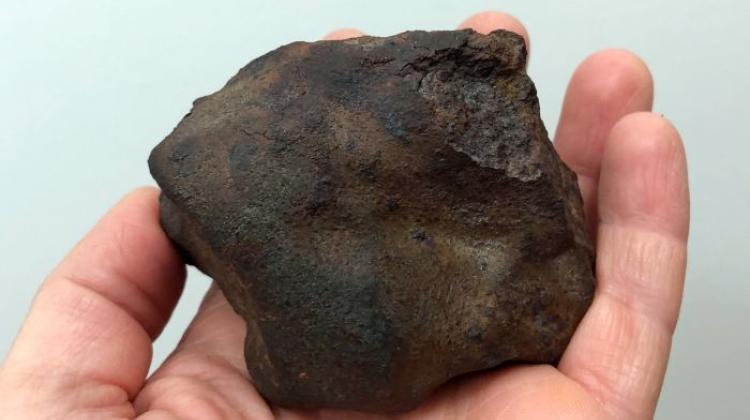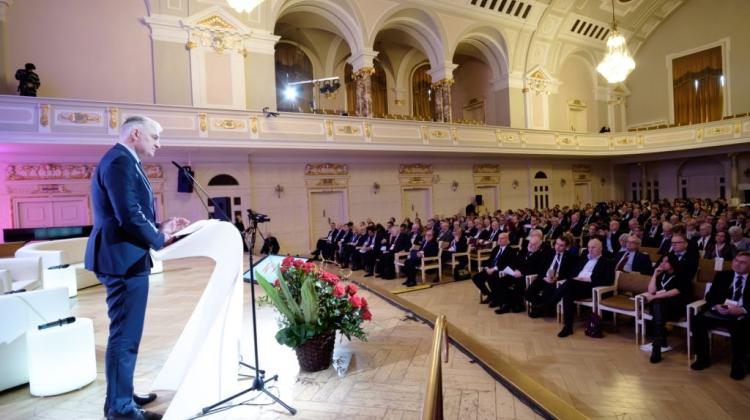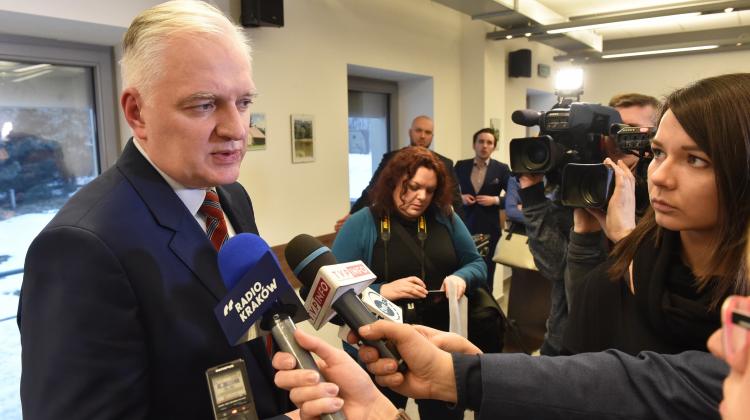Prof. Duch: Poland is making progress in the development of space technologies
 Photo: PAP/Leszek Szymański
Photo: PAP/Leszek Szymański
Over the last few years Poland has made progress in the development of space technologies; we have managed to establish the Polish Space Agency and send satellites into space - emphasised Deputy Minister of Science and Higher Education Prof. Włodzislaw Duch.
Deputy Minister, who attended the conference "Copernicus - the road to economic development" dedicated to the functioning of the European Earth Observation Programme told reporters that last year we managed to set up the Polish Space Agency, and launch two small Polish satellites - Lem and Hevelius. "We are slowly learning not only how to use satellite data, but also how to construct our own satellites. Almost every country does that now" - noted Duch.
He also mentioned about the observational program Copernicus of the European Commission. According to Prof. Duch this is one of the most ambitious programs in the world, designed to develop knowledge of the Earth on a global scale. "We have to observe what is happening on the ground, in the air and water. Global changes may be of interest locally, for example to farmers" - explained Deputy Minister.
He noted that on the one hand, the program leads to the development of new technologies, but on the other - the services associated with access to satellite data, which play an important role. "There are currently thousands of these satellites - observation, telecommunications devices. They are useful in crisis management, and observing border traffic" - said Duch. He added that the satellites can also be used to monitor large fires or floods.
Head of the Polish Space Agency Prof. Marek Banaszkiewicz emphasised at the conference the need to work on the transfer of innovation from science to industry. "You have to find companies with which you want to work. If you can not find them, start joint ventures, or your own companies. Employees are also encouraged to start companies" - he emphasised. He added that in Poland there is a good climate for cooperation between industry and science.
Polish Space Agency (POLSA) aims to contribute to the removal of barriers to the development of companies and R&D institutions in the space sector. POLSA will to coordinate the activities of Polish space sector, which today are scattered among different institutions and departments, identify interesting and important applications, establish its own labs, improve knowledge sharing, etc. According to Banaszkiewicz, the benefits from POLSA may include national security, protection against natural disasters, technology development and education of personnel specialising in space.
The largest ongoing projects of the European Space Agency (ESA) are Copernicus - the method of using satellite data, and Galileo - the European satellite navigation system. In 2014, the first satellite was launched in the Copernicus programme, on board a Soyuz rocket from the European spaceport in Kourou, French Guiana.
Poland joined the ESA in 2012 and since then pays the agency contribution of about 30 million euros per year. As calculated by the ESA, every 1 euro invested in space activities has a return of 0.84 - 5.5 euros for the industry of the contributing country.
At the moment - until 2017 - Poland is on preferential terms in the ESA. This gives us time to organize the space industry activities and educate a larger group of Polish engineers capable of building satellites and satellite instruments.
PAP - Science and Scholarship in Poland
luo/ par/ mrt/
tr. RL
Przed dodaniem komentarza prosimy o zapoznanie z Regulaminem forum serwisu Nauka w Polsce.

















